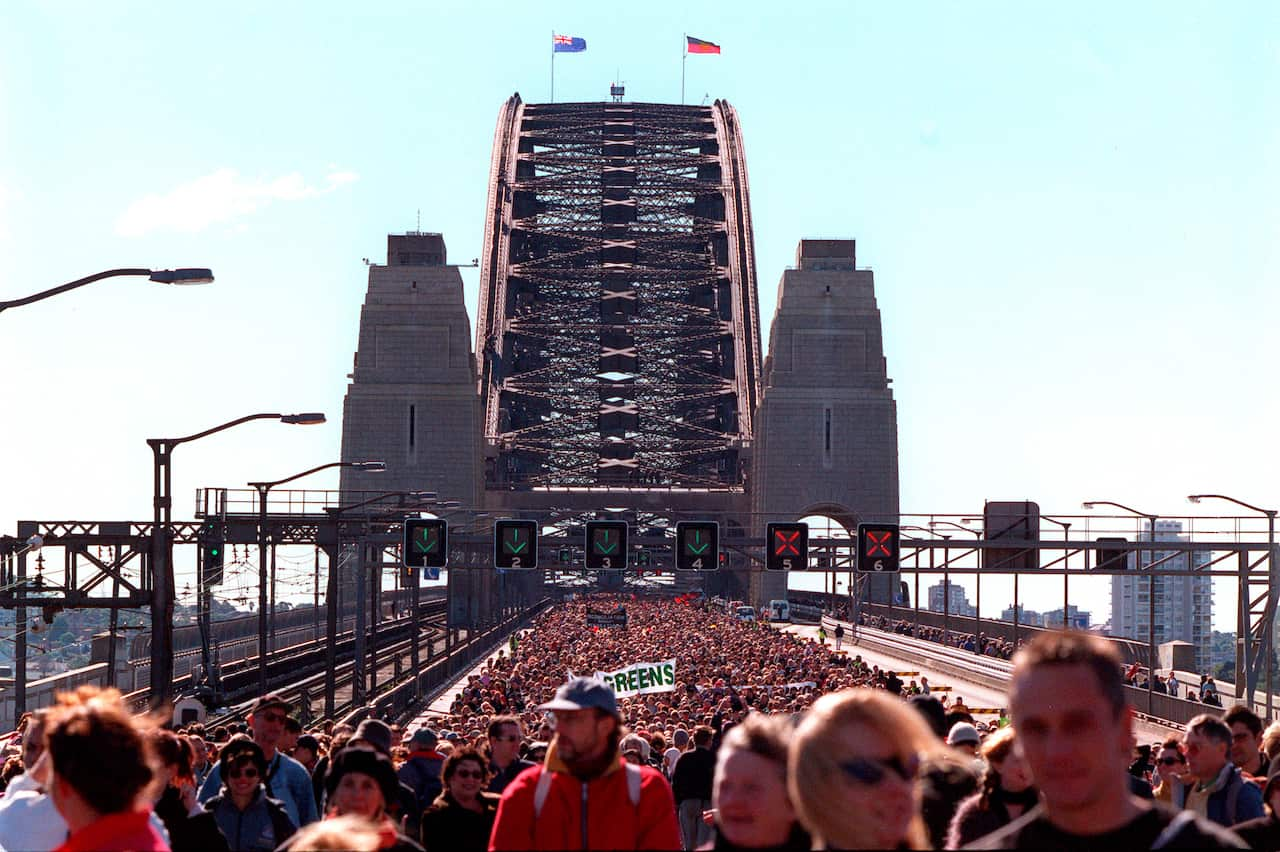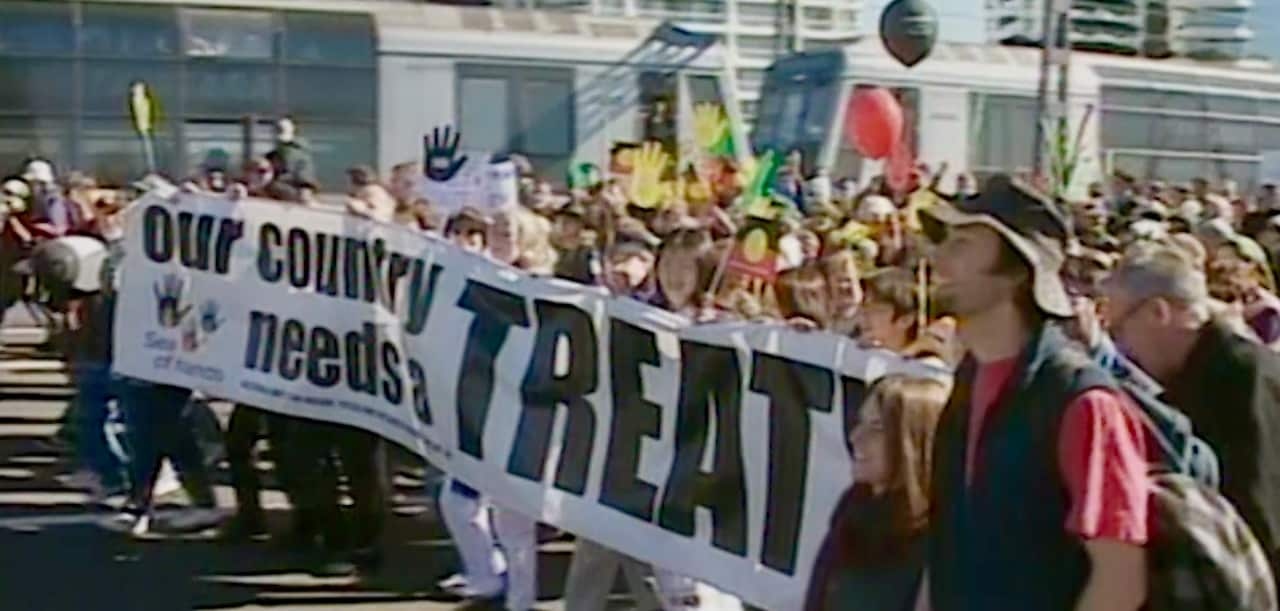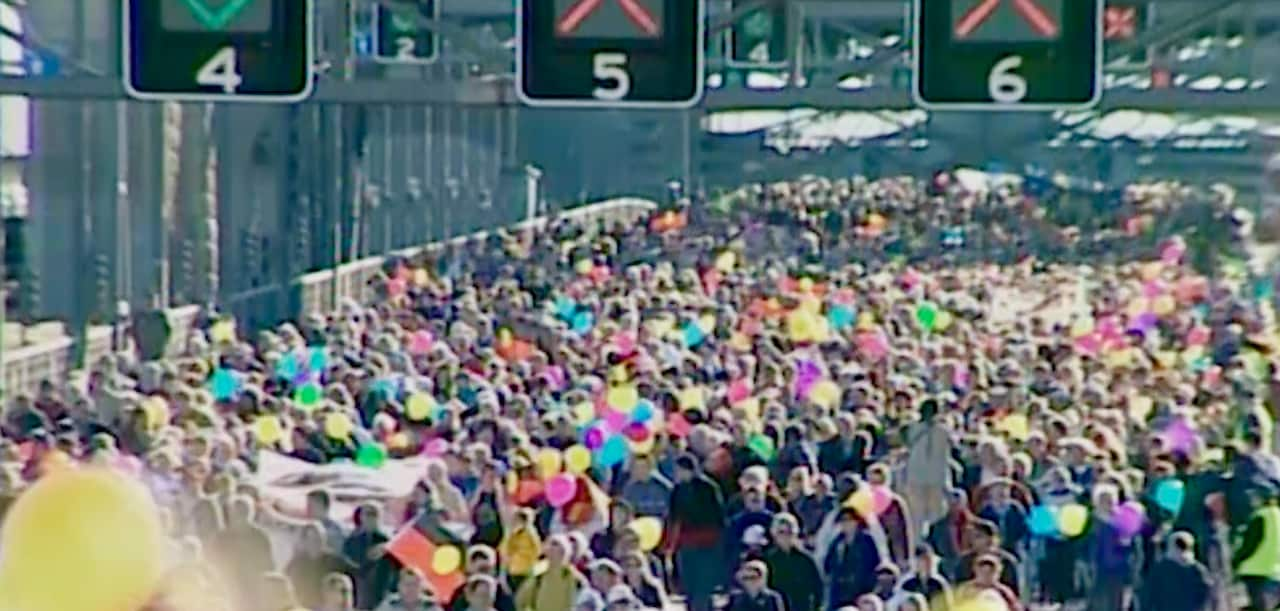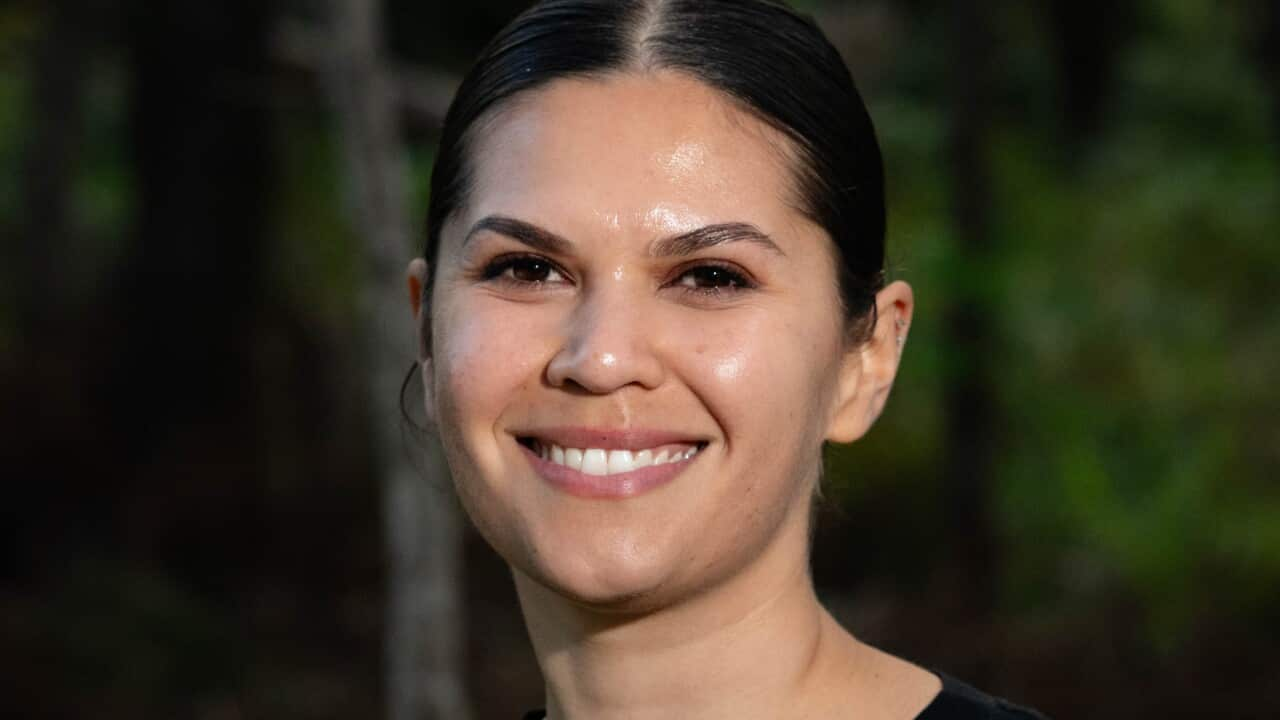"Will you take our hand? Will you dare to share our dream".
On a Saturday morning twenty years ago in Sydney, this question was asked by the late Dr Evelyn Scott AO, chairperson of the Council for Aboriginal Reconciliation (CAR).
The invitation was extended to all Australians in the hope they would answer the following day, by walking in solidarity for truth, justice and equity.
In Sydney, the venue was the iconic Harbour Bridge but in cities and towns across the country, people walked past monuments and statues, travelling their own main streets to show a united commitment to the cause.
Dr Scott's ambition for national reconciliation between First Australians and the broader community was very specific. Her speech the day before the historic walk expressed high expectations, but the potential reward would be an enormous social impact.
The nation had been presented an opportunity to evolve.
In true reconciliation, through the remembering, the grieving, and the healing, we can come to terms with our conscience, and become as one in the dreaming of his land.
What this great campaigner could not have anticipated while amongst a friendly crowd of supporters, was the sheer number of people who would indeed, show up and share in her dream the following day. People gushed out of trains at Milsons Point, floating across the bridge all day to everyone's surprise and delight. Emotions were high and mixed. Some were joyful and proud. Others angry; many in mourning, having suffered the impact of colonisation. Vast numbers were demanding a national apology to the Stolen Generations, which Prime Minister John Howard steadfastly refused to give.
Emotions were high and mixed. Some were joyful and proud. Others angry; many in mourning, having suffered the impact of colonisation. Vast numbers were demanding a national apology to the Stolen Generations, which Prime Minister John Howard steadfastly refused to give.

Hundreds of thousands of people crossed the Sydney Harbour Bridge in the 'Walk for Reconciliation' as part of Corroboree 2000. Source: NEG
John Howard would not utter the word Sorry on behalf of the nation nor would he journey the Harbour Bridge with his fellow Australians. Always a keen walker himself, daily he could be spotted strutting across the globe and the country. But at this celebration of walking, he was conspicuous in his absence.
When Dr Scott was asked before the walk commenced, if she was disappointed in him, she graciously replied "No, that's his choice, if he doesn't walk.
As long as the people walk. I'm mainly interested in the people walking, because they're the ones that have the power, the people's movement.
Dr Scott's concern that the people would not show up, is an insight into the woman from Ingham, far-north Queensland, who convinced hundreds of thousands of Australian's to 'walk the talk' of reconciliation on a cold, windy day on the 28th of May, 2000. Her worry wasn't a simple case of 'hostess anxiety'.
Dr Scott wanted an undeniable mandate for change, and she needed big numbers to prove the point.
"I'm hoping that as many people as possible march to give us the mandate so that we can go ahead with the issues that the government has to deal with".
The CAR final report recommended a referendum to recognise our place as the First Peoples, and a Treaty. Families and children were also key stakeholders, "I am hoping that everybody that comes along, families and children, enjoy themselves... A lot of the council members have families that they're never home with, so I hope everybody gets together and have a wonderful day."
Families and children were also key stakeholders, "I am hoping that everybody that comes along, families and children, enjoy themselves... A lot of the council members have families that they're never home with, so I hope everybody gets together and have a wonderful day."

Walkers for Reconciliation on the Sydney Harbour Bridge hold banner calling for Treaty. Source: SBS File
Looking back with the benefit of hindsight, it is hard to believe anyone doubted the public interest in walking over the bridge for Reconciliation. But back in May 2000, before Facebook could declare our personal interests, before Twitter or Instagram could illustrate our support, it was difficult to gauge support for social causes.
The Night Before the Walk
As a journalist covering this story for ICAM at SBS, I had the great privilege of interviewing Dr Evelyn Scott alongside her fellow Council member and good friend, Dr Jackie Huggins. What they shared with me over a pot of tea has never been forgotten.
Both Dr Scott and her ally Dr Huggins were in agreement. Neither was certain anyone would turn up for the walk over the Sydney Harbour Bridge.
I have checked my memory with Dr Huggins, herself a council member from January 1995 to December 2000 and she confirmed their trepidation.
Their worries were contagious. I booked my camera crew to start work, on the bridge at 5:30am.
We drove around the streets in darkness. I was determined to film any activity, from first light. But as we drove around Milsons Point looking for anything that moved, we also wondered... what would the day be like if no-one arrived?
Thankfully we were all wrong. They arrived in numbers that cannot be accurately counted.
But even if we can't count the humans, the emotions were evident. Tears and laughter were in equal abundance.
All was captured in a documentary that was broadcast a couple of days after the event. The film has been pulled from the archive and will air tonight on NITV at 7:30pm.
In the film, former Senator Aden Ridgeway said, 'I felt like throwing a blanket over the nation and making love, it was such a great day.'

Thousands of people walked across Sydney harbour Bridge for Reconciliation at Corroboree 2000. Source: SBS File
Council Achievements
At the time the Council wrote to all leaders of States and Territories seeking, and for the most part receiving their commitment in areas of employment, education, health, housing, justice, communications, measures to strengthen [our] communities, and measure that nurture [our] culture and share history.
At the time all the elected leaders were men, and all wrote back addressing their letters to Dear Evelyn, and for those not so close, Dear Dr Scott.
Premier of NSW, Bob Carr “we are grateful for the guidance provided by Councils Documents for Reconciliation…It is a substantial and powerful legacy and I thanks Council for it.”
Premier of Qld, Peter Beattie “The Qld Government thanks you and the Council… for its committed and valuable efforts towards healing our nation.”
Chief Minister ACT, Gary Humphries “I would also like to take this opportunity to thank you and the Council for your leadership and work towards reconciliation.”
Chief Minister Northern Territory, Denis Burke “as I explained to you on previous occasions, I do not consider that it would be appropriate to commit the Northern Territory Government to the implementation of specific policies and strategies developed by the Council for Aboriginal Reconciliation.”
Premier of South Australia, John Olsen “The Council for Aboriginal Reconciliation has worked tirelessly to promote Aboriginal Reconciliation and is to be congratulated for some very positive initiatives which, I am sure, will continue long into the future.”
Premier of Tasmania, Jim Bacon provided three sentences as a cover letter for the States report card, signing 'yours sincerely'.
Premier of Victoria, Steve Bracks “While recognising that there is more work needed to achieve the Council’s vision, I wish to congratulate you and the many people associated with the Council who have worked tirelessly at both national and community level to promote Reconciliation.”
Premier of Western Australia, Richard Court wrote “the WA Govt will examine the proposal to provide ongoing funding to support community based reconciliation activities. With kind regards…”
And although the Prime Minister, John Howard chose not to walk over the Bridge on Sunday, the day before his smile was beaming congratulations at Dr Scott after her speech at the Opera House, which ended in a standing ovation.

Dr Evelyn Scott received from PM John Howard an Australian Day Achiever Award in 2001, nine months after the walk over the harbour bridge. Source: DIG (AAP Image/Alan Porritt)
Remembering the dream
I understand people hold frustrations with the concept and process of Reconciliation.
But today is a day we should remember the incredible feat that Dr Scott achieved.
It took a dignified women in her sixties to inspire such widespread enthusiasm, and compel people to walk.
The Council's vision was for;
a united Australia which respects this land of ours: values the Aboriginal and Torres Strait Islander heritage; and provides justice and equity for all.
For all Dr Evelyn Scott's efforts, I will be forever grateful that I was lucky enough to be on the bridge, when her dream 'that we can be as one in the dreaming of this land' came to life.
The full documentary can be viewed on NITV's Living Black, Thursday 28th May, 2020 at 7:30pm or on SBS OnDemand.










